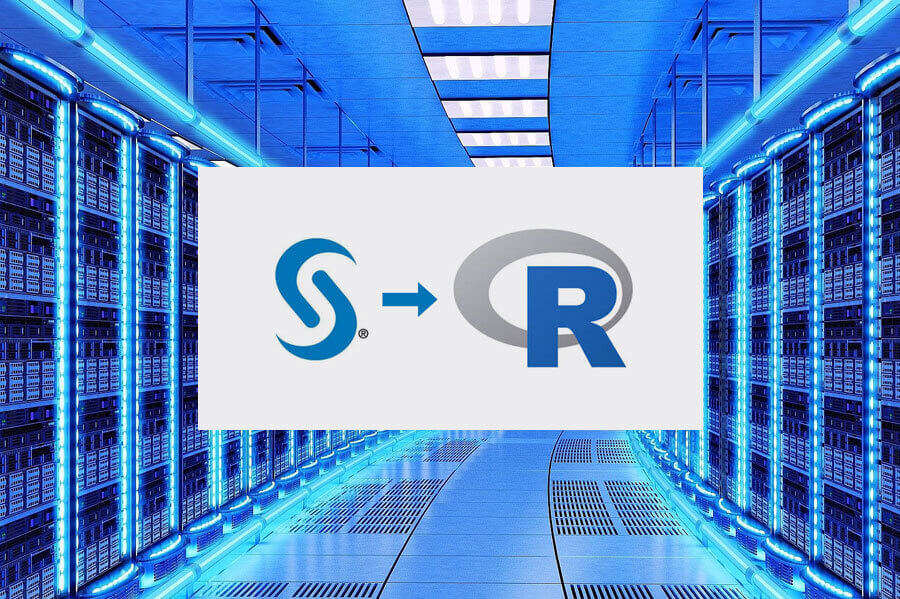There’s a switch that’s beginning to sweep across digital domains globally; it’s the transition from using the legacy-based SAS proprietary software to R, a newer, open source, free to use software environment. This change is still in its infancy, however, the data experts at ProCogia offer a niche service, supporting their progressive clients who are keen to make the move.
Why migrate from SAS to R?

There are several key benefits of switching from SAS – a procedural programme to a more functional one in R.
Cost Savings
One of the main reasons for making the change to R is that SAS costs money to use and R does not. “Pretty much anything you would like to do in SAS, you can do it in R at low or no cost,” explains Joseph Korszun, Data Science Consultant at ProCogia. “With SAS you pay for a base licence and it becomes costly to plug in extensions [each costing extra] which allows you to perform advanced analysis.”
Collaboration
Another big incentive to make the switch to R is the ability for unlimited collaboration amongst peers. In an open source system, collaboration is one of the main focal points in program development. The advances made in R allows users to interact using a central, online repository such as Git, which is used for coordinating work among programmers collaboratively developing source code. Users are able to see real-time working changes to code. In contrast, working with SAS requires users to work on individual documents and having to update each file with their workings and keep a tight handle on version control. There is simply no online interaction.
Interoperability
R also allows its users to interact between different programs, for example a user can write Python and other software languages within R. This interoperability combined with the interaction between peers helps with accountability and traceability.
Advanced Analytics
Advanced and usable analytics and insightful reportings can quickly be achieved through R. Statistical techniques such as Machine Learning (ML) and neural net based approaches are a much better fit with R.
SAS
SAS is a legacy based programming language which has primarily been used for validation processes. This high cost statistical software suite was developed to perform basic procedural programming using statistics and analytics and has mainly been used by clinical trial companies, healthcare organisations, pharmaceutical industries and marketing agencies.
R
Alongside being widely available and free to use, R benefits from its strong user community. As universities continue to increase the number of courses specialising in R, the community will continue to grow and evolve. This community works together to continually develop new packages and maintain existing ones. This increasing momentum reflects the speed of R progression.
Procogia at your service
 If you are looking to make the switch and you have a finalised data set in SAS, this can be directly imported into R. Any procedural based programmes, however, would have to be converted into R which takes longer. For clients just getting started on their data-driven journey, ProCogia recommends businesses adopt R Server Pro and R Connect, providing a centralised source for R systems and dashboards to display key data.
If you are looking to make the switch and you have a finalised data set in SAS, this can be directly imported into R. Any procedural based programmes, however, would have to be converted into R which takes longer. For clients just getting started on their data-driven journey, ProCogia recommends businesses adopt R Server Pro and R Connect, providing a centralised source for R systems and dashboards to display key data.
Expertise with R
The ProCogia team of data specialists are all seasoned R users; they are experts at writing code and understand how to manipulate the mechanics of R to provide deeper data insights and deliver tailored programs to suit your specific requirements. Specialist training sessions and workshops covering the switch from SAS to R are available for all ProCogia clients and can be tailored exactly to any bespoke requirements. In addition, the team offers an in-house consultation service delivered at your premises. “Switching over to R can be challenging at first, but once you get the hang of it, it’s like riding a bike,” adds Joseph.




